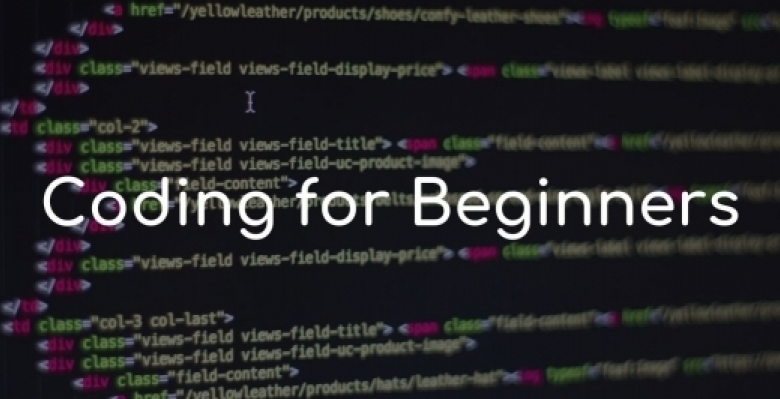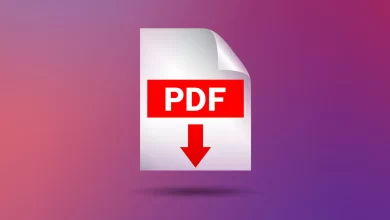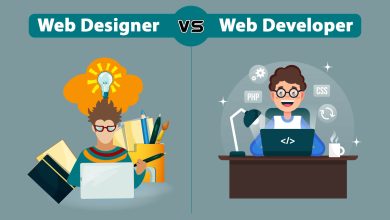The Beginner’s Guide To Programming: Essentials You Must Know

So, you want to learn to code but don’t know where to start? Well, this write-up can help you out! Coding or programming is one of the hottest career prospects today. As more and more aspects of our society, the demand for capable coders and skilled software engineers is high.
If you haven’t ever coded before, this article is for you. It will brief you on the preliminaries, show you some great online learning resources, and cover the beginner basics.
Let’s begin.
All You Need To Know To Begin Coding
Before we begin, let’s get one thing clear.
Any expert coder or programming assignment expert will tell you that programming requires patience, loads of practice, intuitive & intelligent problem-solving skills, focus, and self-motivation. Things may frequently seem overwhelming, and programming problems may seem too complicated. Those critical moments separate the casual coder from the ones that love to code!
With that in mind, here’s how to start with programming.
-
Learn Programming Fundamentals
One of the first things to decide is the programming language.
There are numerous kinds of programming languages out there. (low-level, high level, markup, etc.) However, beginners should always start with a high-level programming language as they resemble natural languages the best.
- Python is currently the most popular and the most beginner-friendly high-level programming language. It boasts of an exceedingly lucid syntax, has many online tutorials, books, guides, etc., and a massive community.
Python ranks 1 in the TIOBE programming community index (a global standard). It is viral in AI & machine learning and is the most used language for developing AI models and numerous libraries for AI, statistical, numerical & network programming.
- If you yearn to develop online apps, JavaScript, Java, C, and C++are your best choices. Java & Kotlin ( a superset of Java) are the starting languages if you are looking to develop Android apps. If you are more into iOS, then Objective C and Swift should be your starting point.
- HTML/CSS is typically an indispensable part of JavaScript. Therefore, if you are starting with JavaScript, the chances are that you will learn HTML/CSS as well.
-
Learn From Top-Notch & Official Sources
There are a plethora of sources for beginners out there. No matter what programming language you are starting with, you will find books, guides, online tutorials, articles, and both free & paid courses on MOOCs.
- The Internet is a great place to start searching. Explore a bit intuitively, and you will indeed find something handy. However, it might be tricky for an absolute beginner to separate the good from the bad with many different results.
So, here are some links to aid you.
- 10 Best Books For Novice Coders
- 50+ Great Books For Every Coder In 2022
- 10 Amazing Books To Get Started With Python
- ’10 Books That Can Help You Master JavaScript
- 10 Best Java Books In 2022
If books aren’t what you are looking for, then there are a host of FREE & paid online study resources. In addition, every central MOOC platform offers programming courses, degree programs, and professional certificates.
- edX, Coursera, Udemy, Udacity, LinkedIn Learning With Lynda, and Simplilearnare some extremely popular MOOCs, each with multiple university-certified programming courses and programming boot camps.
- YouTube offers a surprisingly large amount of FREE content on coding & app development.
- Freecodecamp, GeeksForGeeks, Hackrdot io, W3Schools, PluralSight, HackerEarth, and Coding Dojo are some excellent places to nurture & nourish your coding skills FOR FREE!
-
Focus On Programming Basics
Developing solid coding skills is like developing any other cognitive ability. First, you need a strong foundation and then build upon it. Time, patience, hard work, studying, and dedicated practice are necessary to develop strong programming skills.
Every programing assignment expert will suggest that beginners start with an acute focus on the programming basics.
- Learn the fundamentals thoroughly, and then try your hand at them.
- Read up on and develop your algorithmic problem-solving. Also, brush up on mathematics as it is one of THE MOST BASIC foundations of computer programming.
- Stress on the following as they are common across almost every programming language:
- Data types
- Variables
- Functions
- Array, Lists, Trees, and Data Structures
- Iterations & Recursions
- Conditionals
- Concepts In Object-Oriented Programming (Currently the most utilized programming paradigm)
- Exceptional Handling
- String Handling
- Abstraction
Please read up on these concepts and go through coding examples so as to understand how they are implemented. When coding, note how all the different concepts work together towards a common goal.
-
Build Your First Project
Working on a project is one of the best ways to test your newly-acquired skills. Work on a project of your choice as that offers a practical learning experience in many details. If you don’t know what project to pick, here are some tips.
- Choose What Interests You.
- Start With Something Simple.
- Build something that puts your skills & knowledge to the test.
- Develop something valuable and tangible that you can mention in your CV.
-
PRACTICE, PRACTICE & PRACTICE SOME MORE!!
This point can never be emphasized enough.
The more codes you write, the varied type of problems you solve, and the better a programmer you will become.
- Start with simple problems, and then gradually turn up the difficulty level.
- Solve different kinds of programming problems from varied sources. Finish all exercises in your textbooks, online guides, coding boot camps, and professional courses.
- Analyze every program deeply while solving them.
Remember that programming is 30% syntactic & semantic knowledge and 70% crafting the cleanest, fastest & most effective solution to a problem.
4. Do not ignore your programming assignment or homework. Whether it’s a part of your school & college course or an online course, try to solve them. They will provide you with much-needed practice and sharpen your skills faster.
-
Learn About Package Managers & Developmental Frameworks
Frameworks are libraries and systems that come with features & functionalities necessary for app development. As a result, they make the entire process much more streamlined, easier, and faster. Popular frameworks such as Django, Node, React Native, Laravel, Spring Boot, etc., take care of boiler-plate coding, while users can use their unique features to develop desired aspects of the software.
Package managers for programming languages are a bit different. They come with a built-in integrated development environment (basically, a GUI where you can write programs quickly), intrinsic & third-party libraries, etc.—everything you need to write & test codes without any hassles. In addition, package managers such as Java’s Apache Maven, Python’s Pip, etc., help with installation, updating libraries, listing, uninstallation, and even version control.
And that finally brings us to the conclusion of this write-up. Hope all the information within helps you commence your coding journey with confidence & a proper direction.
If you are struggling with a C, C++, Python assignment or program or project, it’s best to seek help from programming experts. Look for online services that work with certified assignment experts & programming assignment help experts.
All the best!






